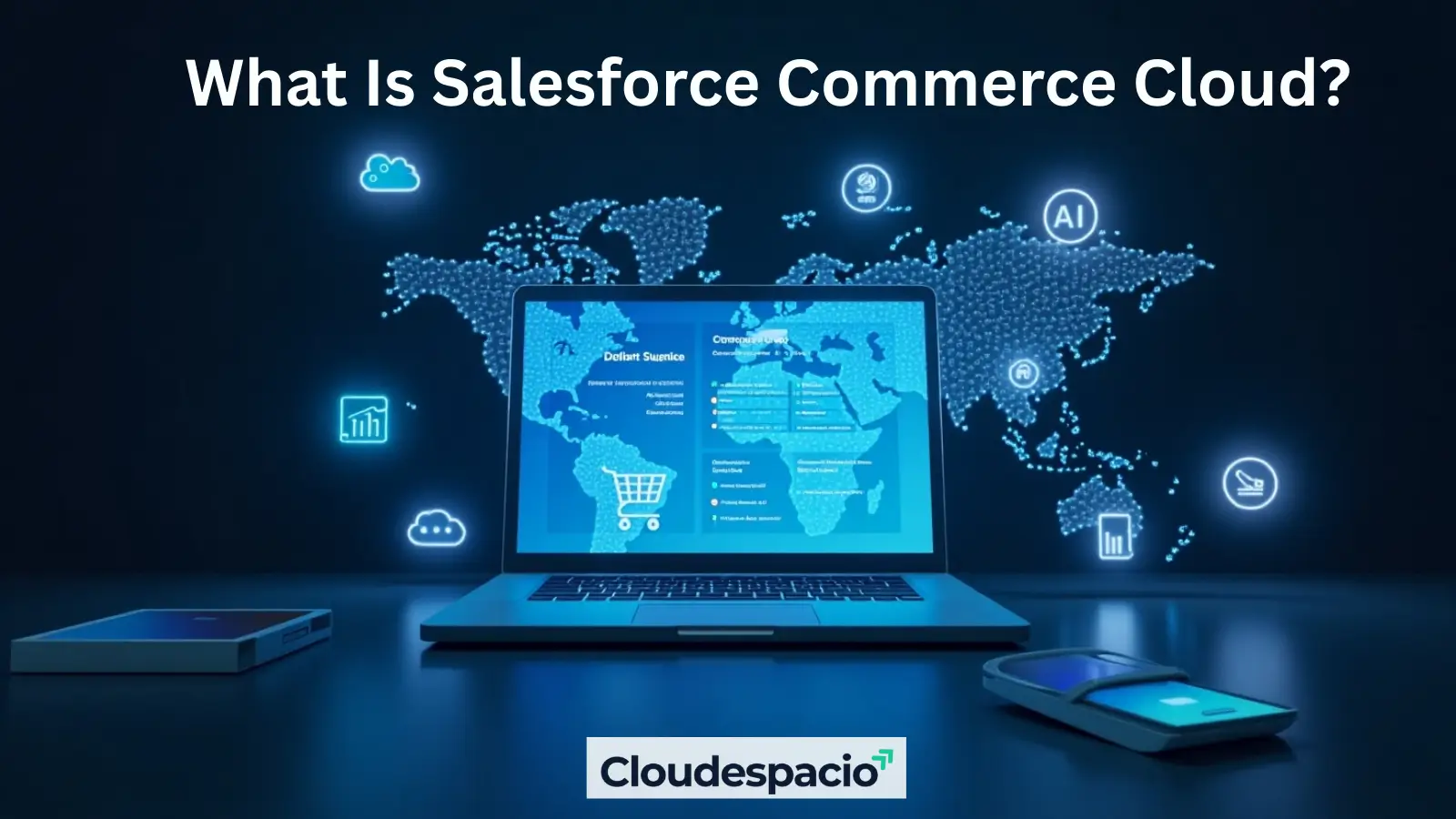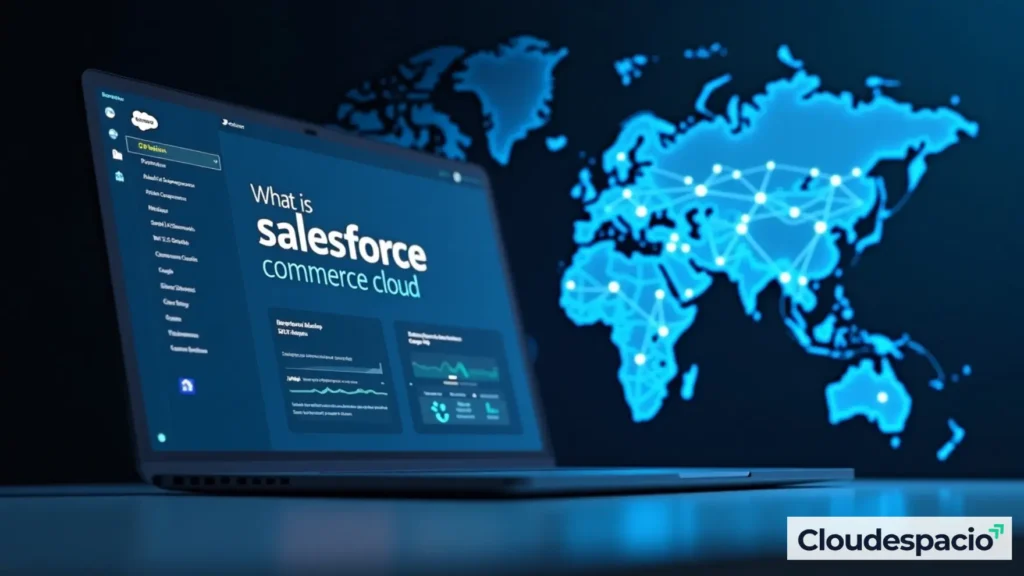


While reading about digital storefronts, eCommerce solutions, retail tech, you may have come across Salesforce Commerce Cloud. It sounds like a big deal. And it is. But what is it, really?
Suppose you’re an expanding firm, and you’ve had it with piecing together plugins, hosting problems, and overlooked customer touchpoints. A system clean and smart for online sales, wherever it’s on desktop or mobile.
Salesforce Commerce Cloud is built for exactly that. It is more than a store builder. It’s the eCommerce brain for serious, forward-looking businesses.
Prior to Salesforce’s involvement, it was called Demandware. It was already well-regarded with B2C retailers: lightweight, flexible, and cloud-first, before “cloud” became a buzzword.
Salesforce acquired Demandware in 2016 and didn’t just rebrand it with a logo change. They wove it into their entire ecosystem. Now, Commerce Cloud could talk to Sales Cloud, Marketing Cloud and Service Cloud, allowing sharing of all data, automations and customer insights.
The result? A commerce engine that doesn’t work in isolation. It becomes part of your larger business flow.
Salesforce Commerce Cloud helps users to start and manage B2C and B2B online sales. In a nutshell, it does that.
But this isn’t about spinning up a basic shop. It’s for businesses looking to:
All of this runs on the cloud. This means you’ll never have to suffer from downtime or other problems due to maintenance because your hosting provider will handle everything for you.

Although there are a lot of features to choose from, let’s look at the ones that just might matter for growing businesses.
You Control Your Storefront Fully
Add products, manage pricing, setup promotions, organize categories, all in one place. No jumping between dashboards. No duct-taping apps together.
Personalization Is Built-In
Salesforce’s Einstein AI sits quietly watching how customers browse, what they like, and how they act on the platform. It provides better-product suggestions, optimized search and dynamically adaptable content. It is like having a digital merchandiser who is always on duty.
Sell in Many Places, Stay in One System
No matter how your customers discover you—on Instagram, in a shop, or through a mobile app—their experience is the same. And you don’t need separate tools to make it happen.
Thinking of Global Reach? It’s Ready
The system allows for selling in multiple currencies and languages, including the euro, yen, English, and Arabic. You’re not limited by borders.
For Developers: Freedom with Structure
Teams looking to create their own custom storefronts using modern front-end frameworks can go “headless.” That means the front-end is yours while Commerce Cloud handles the back-end logic.
Here’s where things get interesting.
This platform integrates seamlessly with everything else as part of the Salesforce ecosystem.
Salesforce coined the term Customer 360 to refer to the customers’ unified view across departments such as sales and support.
Big brands like Puma, L’Oréal, Adidas use Salesforce Commerce Cloud to manage global commerce. That much is true.
But it’s not limited to huge enterprises. Many companies that are in the mid-tier adopt it when they need something powerful enough to use that entry-level platforms aren’t cutting it without having to pay for an army of developers to maintain it.
If your existing system feels constrained or you are contemplating global expansion, this is a good indicator that you are ready for this solution level.
Let’s not do another side-by-side chart. You’ve seen enough of those. Here’s the reality:
This platform isn’t niche. It’s built to flex. Here are some real-world scenarios where it excels.
In every instance, the platform is modified to meet the needs of the business, rather than the other way around.
If you are not sure whether this hype is real or not, then here is the real deal.
It was not made to be, but it is not the cheapest. Long-term thinkers should use this infrastructure to yield good results over a period of time.
If you are just starting to learn about modern eCommerce tools, and your focus is on growth, then yes, you may want to take a look at Salesforce Commerce Cloud. Especially if your business:

Cloudespacio, headquartered in Singapore, is a prominent independent Salesforce and leading consulting firm, dedicated to prioritizing client satisfaction.
Copyright © 2025 All Rights Reserved. Designed by Navpatra.

If you have a project in mind, let’s talk!